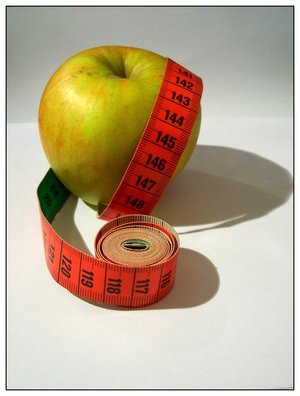Love Yourself.
 Friday, January 8, 2010 at 05:49PM
Friday, January 8, 2010 at 05:49PM 
I just read this opinion piece on CNN.com about dieting and wanted to highlight it because it is definitely worth the read (and it fits in especially well with all my recent posts about dieting and New Year's resolutions!!). Dr. Leo Buscaglia's quote above is also one that you may want to go back and re-read a few times after you read this article as well! Anyways, the author of this piece, Dr. Divya Kakaiya, is a psychologist who has been treating eating disorders since 1985; she is also the clinical director and founder of Healthy Within, an eating disorder treatment center in San Diego. Her main premise in this article: don't diet. While she writes from the perspective that dieting mothers do not set a good precedent for their children, whether or not you are a mother does not make this article more or less relevant. I would encourage everyone to check it out. You can follow the link above, or read it below. Enjoy! :)
Welcome to 2010. What is your New Year's resolution? Are you planning on investing more money into the annual $40 billion dieting industry? If so, please think again.
As we start our work week, many of us are looking in the mirror and saying "Yuck. I feel fat, uncomfortable and need to go on a diet."
Dieting and the language of "fat" have become so normal that we don't think twice before we say, "I have to go on a diet, I have gained so much weight."
If we are parents of teenagers, we may as well be saying to them, "Change yourself, fix your body. You're not perfect and never will be." Is this how we want to empower our youth?
You spend countless hours raising your child with the values of honesty, integrity and the importance of the work ethic. But if you are dieting and complaining about how fat you are, you could be putting your teenager at risk for an eating disorder. As a psychologist who has been treating eating disorders since 1985, I worry that there could be a connection between dieting parents and teenagers who develop anorexia or bulimia.
The 6-year-old girl who is watching her mother suck in her stomach in front of the mirror is going to look at her belly poking out and immediately think that she is fat.
How awful that we just inadvertently planted the seed of lifelong discontent with her body into the innocent mind of a 6-year-old.
We have to be mindful of what we really want to emphasize as important. In this quick-fix world of Botox, plastic surgery and fad diets, our children are not being taught how to tolerate discomfort and how to work hard and patiently.
"Now" is the demand word that parents feel compelled to cater to. We could be creating a generation of self-obsessed, narcissistic children. Do we really want them to feel that the glamour of "Gossip Girl" is the goal of their lives? We must draw the line by examining our own core values.
The majority of us know that the quick fix is not going to work, yet we feel compelled to throw ourselves into the despair of broken diets, broken resolutions, broken promises and worse, a pervasive sense of shame that attacks the core of our being.
We are so inundated with messages that are constantly redefining what is healthy that in our confusion we forget what is normal eating and a healthy, balanced lifestyle.
The "diet monster" gobbles up our self-esteem and makes us return to that unfaithful lover again and again, only to drop more money into that $40 billion pot. We could use that money to educate millions of brains each year, better our schools, reduce poverty and attend to our elderly.
Of course, eating healthily and staying active are very important. But of those who lose weight through dieting, 98 percent gain it back again in two years. Diet is a four-letter word that begins with "die." Isn't that ominous enough?
This year, create an intention not to diet.
When you do this, you are consciously rejecting the appearance-obsessed, materialistic culture that inundates us. An intention to honor your soul instead of your appearance -- to choose to give back in the community, volunteer, give time to the elderly -- will make you feel stronger.
Instead of spending time counting calories or going obsessively to the gym, donate those hours to a shelter for abused women. Love your body. This year, make it your intention to teach your teenager to reject the appearance-obsessed world she lives in and have her give her heart instead of changing her body.
Caution: This approach might make you start to love your body and you may waver on your New Year's resolution to lose weight!
As January unfolds, we are going to be blasted with commercials from multiple sources, with each one touting a permanent relief. The net result of these commercials is to get us to continue to hate our bodies so that these diet companies can make money off our body hatred.
There is also a political reason for women to be held to a high "thin" standard of perfection. We are then no longer a threat to anyone who wants power. "Body Wars" keep women in their place and are economically driven.
Let us assert our power by rejecting the dieting mantra, and standing our ground.



